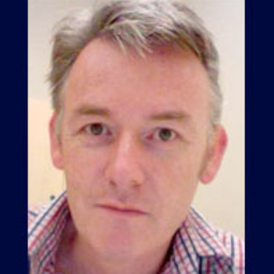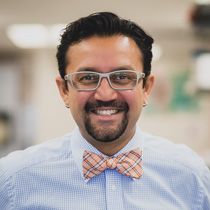
Timothy D. Read, PhD
Associate Professor of Infectious Diseases with Secondary Appointment in Human Genetics, Emory University
Dr Read is an Associate Professor of Medicine at the Emory University School of Medicine, Department of Medicine, Division of Infectious Diseases and has a secondary appointment in the Department of Human Genetics. He completed a B. Sc in Biological Sciences at the University of London and then a Ph. D. in Genetics at Leicester University in the U.K. studying bacterial DNA transfer systems. Following his thesis, Dr Read completed two doctoral fellowships in bacterial pathogenesis at Emory University School of Medicine in Atlanta. In 2003, Dr. Read moved to the Naval Medical Research Center in Rockville, where he has built a small high-throughput genomics facility concentrating on the population genomics of bacterial biothreat agents. In February 2009 he moved back to Emory University School of Medicine He also founded the Emory Geneome Center, a core facility centered around next-generation sequencing technologies in 2009 and ran the center until 2012. He is currently the Director of Graduate Studies for the Population Biology, Ecology and Evolution program at Emory.

Joel Dudley, PhD
Assistant Professor, Genetics and Genomic Sciences; Assistant Professor, Population Health Science and Policy, Mount Sinai School of Medicine
Dr. Dudley has previously held positions as Co-founder and Director of Informatics at NuMedii, Inc. and Consulting Professor of Systems Medicine in the Department of Pediatrics at Stanford University School of Medicine, where he participated in leading research to incorporate genome sequencing into clinical practice (published in The Lancet, Cell, and PLoS Genetics). Dr. Dudley’s current research is focused towards solving key problems in genomics and precision medicine through the development and application of translational and biomedical informatics methodologies. His lab publishes in the areas of bioinformatics, genomic medicine, personal and clinical genomics, as well as drug and biomarker discovery. His recent work with co-authors describing a novel systems based approach for computational drug repositioning (published in Science Translational Medicine) was featured in the print edition of the Wall Street Journal, and earned designation as the NHGRI Director’s Genome Advance of the Month. He received a BS in Microbiology from Arizona State University and an MS and PhD in Biomedical Informatics from Stanford University School of Medicine.

Claire M. Fraser, PhD
Professor of Medicine; Director of Institute for Genome Sciences; University of Maryland School of Medicine
Claire M. Fraser is Director of the Institute for Genome Sciences and a Professor of Medicine at the University of Maryland School of Medicine in Baltimore, Maryland. She was previously the President and Director of The Institute for Genomic Research in Rockville, Maryland. Dr. Fraser has played a seminal role in the sequencing and analysis of human, animal, plant and microbial genomes to better understand the role that genes play in development, evolution, physiology and disease. She led the teams that sequenced the genomes of several microbial organisms, including important human and animal pathogens, and as a consequence helped to initiate the era of comparative genomics. Her current research interests are focused on the structure and function of the human git microbiota. Dr. Fraser has more than 240 scientific publications, and has served on committees of the National Science Foundation, Department of Energy and National Institutes of Health. She is the recipient of numerous awards and honors including the Promega Biotechnology Award and the E.O. Lawrence Award from the Department of Energy, she is a Fellow of AAAS and the American Association of Microbiology, and she has been elected into the Marlyand Women’s Hall of Fame and the Institute of Medicine. She received her PhD in pharmacology from State University of New York at Buffalo.

Elodie Ghedin, PhD
Professor of Biology, Public Health, New York University
Dr. Ghedin is a Professor of Biology at the Center for Genomics and Systems Biology, and a Professor of Public Health, at the College of Global Public Health, New York University. Her laboratory uses genomic tools to generate critical insight about host-pathogen interactions, microbial and viral population structures, and how these impact emerging infectious diseases. Dr. Ghedin received her BS and PhD from McGill University and was trained as a postdoctorate fellow at the Laboratory of Parasitic Diseases, NIAID/NIH. She joined the NYU faculty in April 2014, following 8 years (2006-2014) at the University of Pittsburgh School of Medicine, and 6 years (2000-2006) at the Institute for Genomic Research (TIGR, Rockville, MD) where she led the Viral Genomics group. In 2011, citing the creative and collaborative nature of her work, and her contributions to parasitology and virology, Dr. Ghedin was recognized as a fellow by the MacArthur Foundation.

Mark Hernandez, PE, PhD
Professor of Civil, Environmental, and Architectural Engineering, University of Colorado
Dr. Hernandez is a registered professional civil engineer and active technical consultant and expert witness to the commercial biological waste treatment and bioaerosol industrial hygiene sectors since 1994. Having received his PhD in environmental engineering from the University of California at Berkeley, he completed his post-doctoral fellowship at Berkeley from 1994-5. A full professor at the University of Colorado at Boulder, Dr. Hernandez leads externally funded graduate research programs in applied environmental microbiology. Lecture instructor for courses on environmental engineering, wastewater treatment, thermodynamics and environmental microbiology. In 1998, he was awarded an Environmental Research Fellowship by the Charles & Anne Lindbergh Foundation. A member of The Leadership Alliance, Dr. Hernandez was awarded the Diversity and Equity Award by the University of Colorado at Boulder in 2008 and was awarded the Hispanic Engineer National Achievement Awards Corporation in 2012. Dr. Hernandez’s research presently focuses on the application of environmental microbiology to emerging engineering and health issues. Research areas include bioaerosol characterization, bioaerosol oxidation, inactivation of airborne pathogens, microbial treatment of acid mine drainage, and microbially-induced concrete corrosion.

Gautam Dantes, PhD
Our research group develops novel technologies to understand, harness, and engineer the biochemical processing potential of microbial communities. We work at the interface of microbial genomics, quantitative ecology, synthetic biology, systems biology, and computational biology to study problems with biotechnological and biomedical relevance. Our current projects are focused on three major themes: (1) understanding the evolution and exchange of antibiotic resistance amongst diverse microbial communities, (2) engineering improved probiotics to treat gastrointestinal disorders, and (3) engineering microbial catalysts to produce value chemicals such as biofuels.
